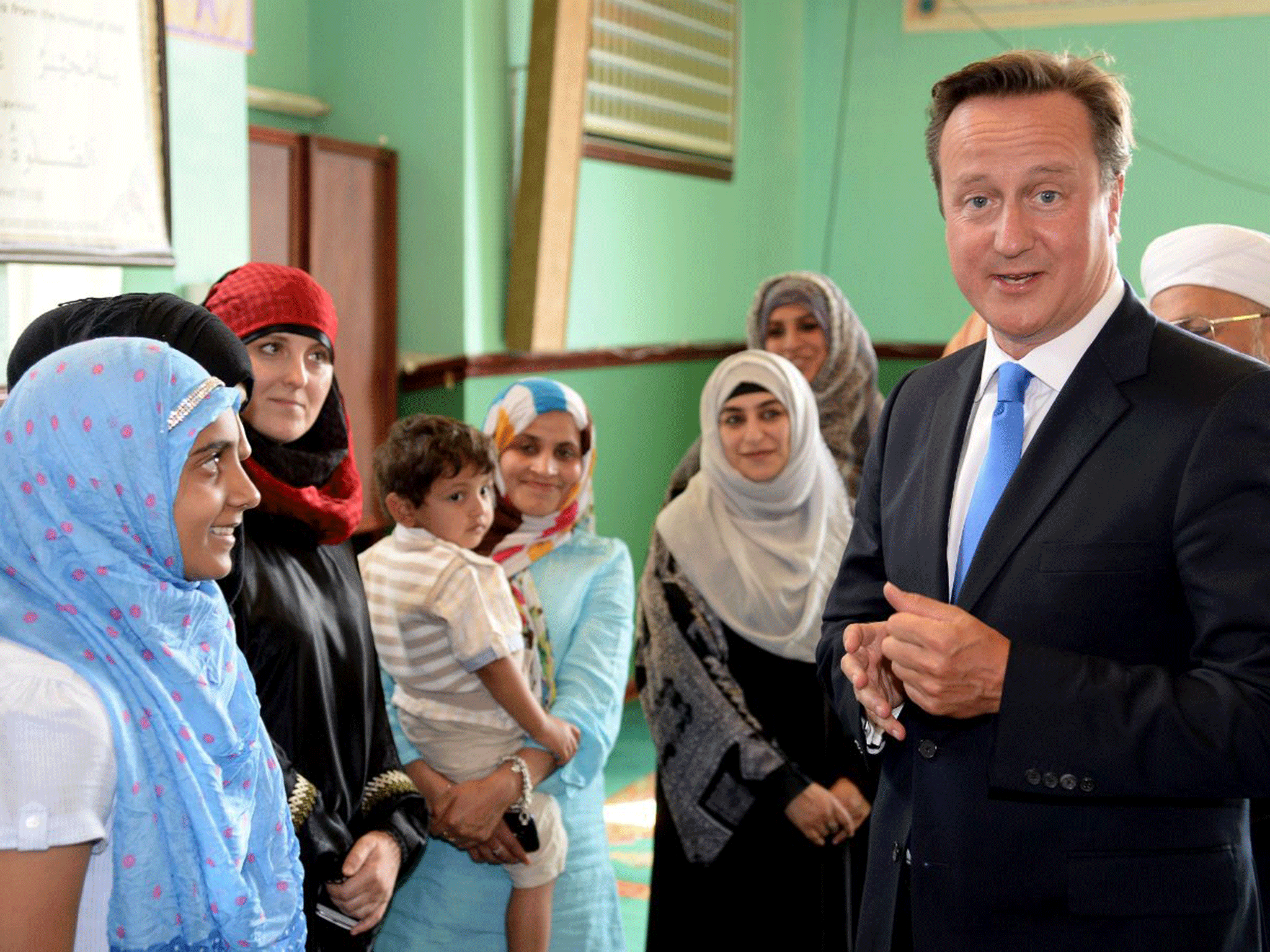Isn’t deporting the mothers of young Muslim men likely to drive extremism?
Targeting wives and mothers who cannot speak English seems a funny way to win the hearts and minds of Muslims

Your support helps us to tell the story
From reproductive rights to climate change to Big Tech, The Independent is on the ground when the story is developing. Whether it's investigating the financials of Elon Musk's pro-Trump PAC or producing our latest documentary, 'The A Word', which shines a light on the American women fighting for reproductive rights, we know how important it is to parse out the facts from the messaging.
At such a critical moment in US history, we need reporters on the ground. Your donation allows us to keep sending journalists to speak to both sides of the story.
The Independent is trusted by Americans across the entire political spectrum. And unlike many other quality news outlets, we choose not to lock Americans out of our reporting and analysis with paywalls. We believe quality journalism should be available to everyone, paid for by those who can afford it.
Your support makes all the difference.The most obvious flaw in David Cameron’s extremism plan is this. What seems to you more likely to radicalise a young British Muslim: having a mother around the house who does not speak very good English, or having that same mother deported, because of the fact she struggles with the language? I don’t think it is a hard question.
First, the link between a mother’s grasp of English and a son’s radicalisation is tenuous. To judge by the Prime Minister’s article in yesterday’s Times it amounts to no more than a theoretical example of a Pakistani boy struggling to integrate: “He [the boy] finds it hard to communicate with her, and she [his mother] doesn’t understand what is happening in his life”. Cue a shift towards Isis, we are told. If that is the limit of it, I would say that my theoretical example contains more of the ring of truth.
It runs like this: one day, UK immigration officers arrive at the door of a Pakistani boy’s home, bundle his mother into a van, and fly her in the dead of night back to a country she left for the sake of providing that very same boy with a better future. He becomes angry at the state. His mother is not around to tut at him, either in Urdu, or comically broken English. He finds a sympathetic ear in online jihadi forums.
Then there is the bigger picture. As with all extremism measures, it is not just the test case that matters, but how the community as a whole responds. Targeting wives and mothers seems a funny way to win the hearts and minds of Muslims. Baroness Warsi, the former co-chair of the Conservative party, noted acerbicly that her own Pakistan-born mother, whose English “isn’t great”, managed to raise a lawyer, teacher, accountant, pharmacist and cabinet minister.
And mood music here will count for more than the practical impact of the policy. Cameron talked on Radio 4 yesterday of up to 190,000 Muslim women who have real trouble communicating in English. But when pressed by Mishal Husain he admitted that the reform would only apply to those who had arrived “recently”, on a spousal visa. Now, Cameron’s government has already made it far harder for non-EU nationals to gain residency in the UK: a migrant from somewhere like Pakistan must have a well-salaried job offer before they enter the country, and speak better English. To keep their place, they must earn more than they had to before 2011. Men who do fit these requirements are likely to be better educated, and possibly more liberal as a result – meaning the wives who join them are likely to be so too.
Far more likely to be hit are refugees. A woman from Syria or Afghanistan who comes to the UK to join her husband – and there are many such waiting anxiously for news – may well fail to pick up much English. There are traumas to forget, children to raise. And she will probably be living on or around the poverty line.
To be clear, I support encouraging Muslim women to learn English. That Cameron cut the funding for migrants to learn the language in 2011, then withdrew it entirely in 2014, was a misjudgement (one that must have lead, by his own logic, to the growth of extremism).
Naz Shah, the Labour MP for Bradford West, noted that ten per cent of residents in her constituency cannot speak English, and fretted that – since all the shops and services offer Punjabi and other languages – rates of understanding had decreased since her mother’s day. This is indeed harmful. Likewise, I agree with Cameron that forced marriages, FGM, sharia courts and gender segregation should be actively targeted by the government. Those who complain about state abrasiveness in these contexts are not worthy of hearing. Like it or lump it.
What I object to is the use of counter-extremism as a shield for policy-making that has ulterior motives, and may backfire entirely. Forcing recent arrivals to take an English test after two-and-a-half years looks very much like a measure to reassure white voters that the government is “tough” on immigration and terrorism (the two issues that top the list of public concerns, according to the latest polling).
What the Prime Minister seems happy to accept as a consequence is the anger and mistrust of young Muslim men. The intent to break down patriarchal systems should be applauded. But this proposal is about as good an example of how not to do counter-extremism as you are likely to find.
Join our commenting forum
Join thought-provoking conversations, follow other Independent readers and see their replies
Comments